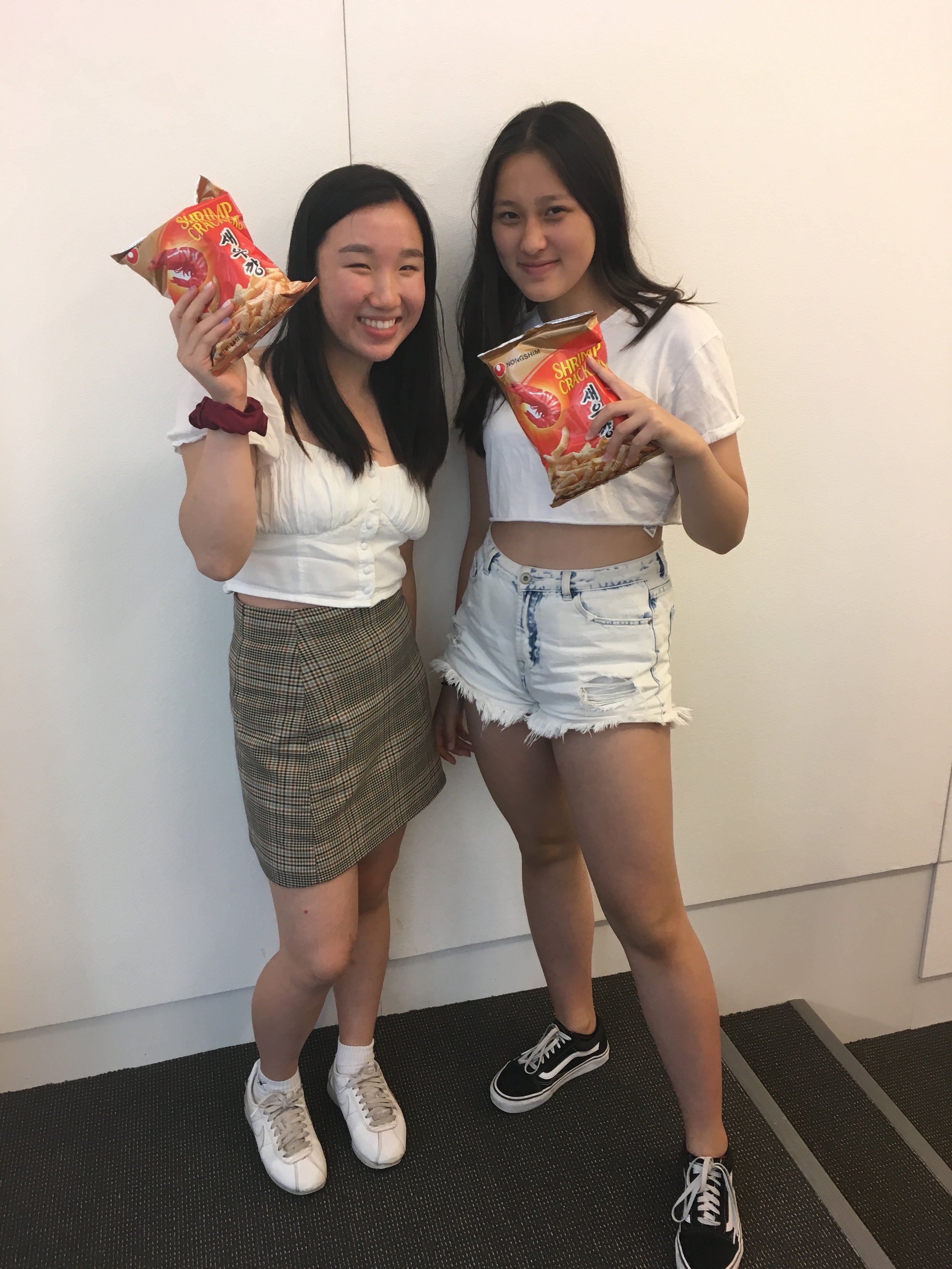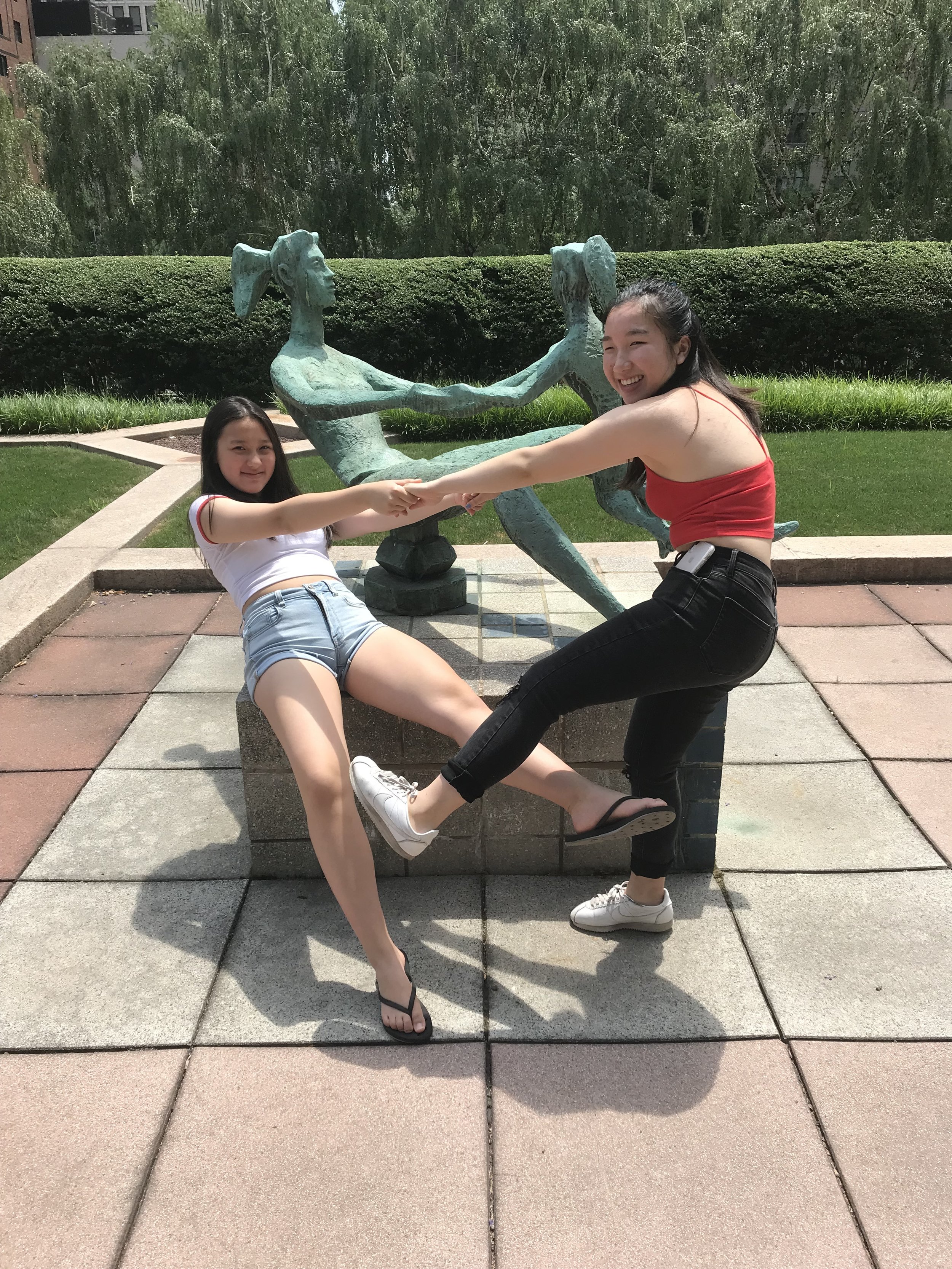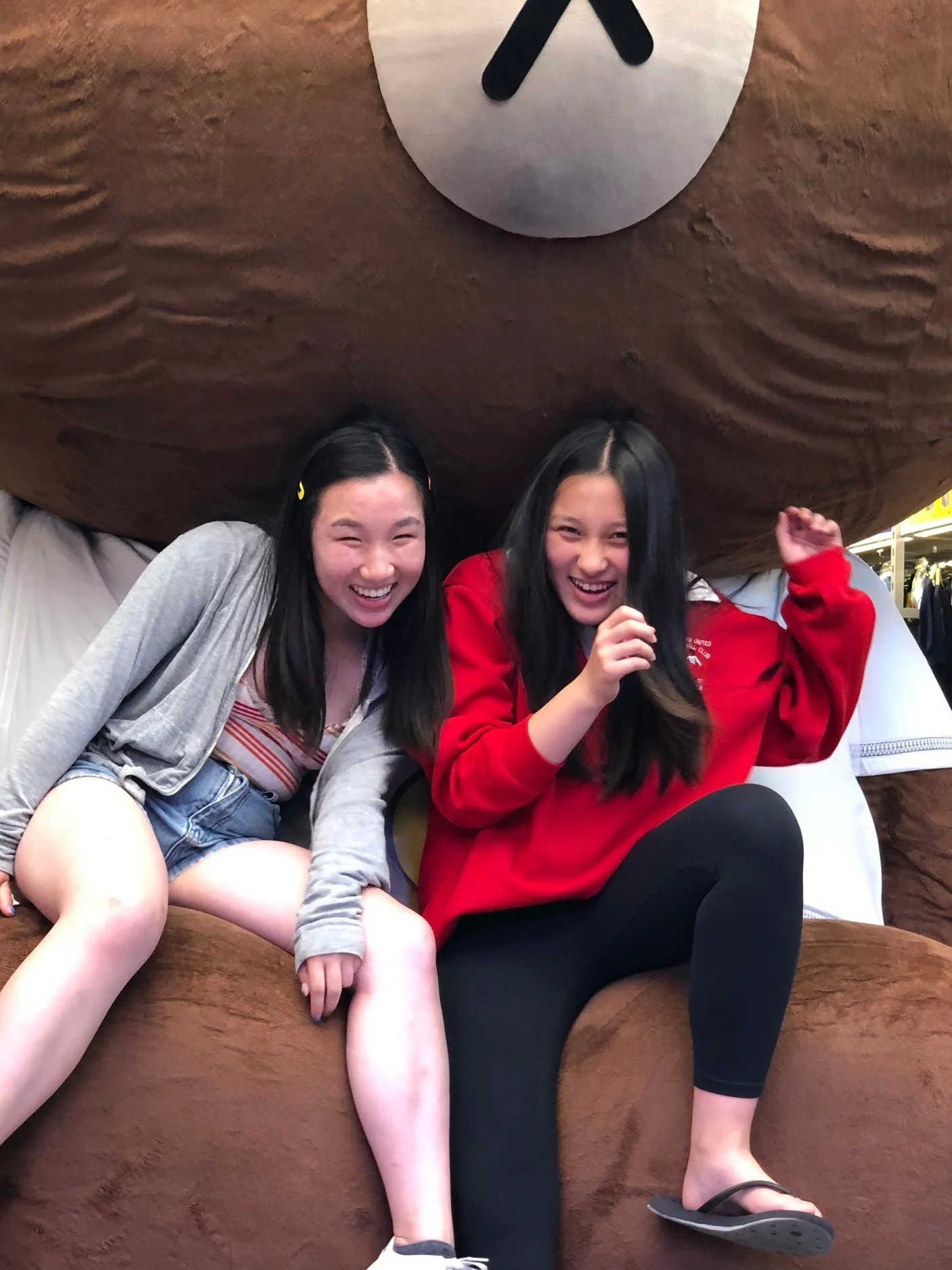Jocelyn Gao & Emily Wang
Reflections:
Emily Wang
The interview was an amazing opportunity to consider my own story. I learned about myself, how I could piece together the different parts of my identity and beliefs to create a complete narrative, and the results surprised me in the best way possible.
I also learned a lot about my partner. It was an incredible opportunity to bond with her as we shared a part of ourselves with each other that we don’t usually talk about. It was really powerful to be able to hear someone else’s story, and be put in charge of recording it to share with others. I felt responsible and uniquely invested in what my partner had to say, and there were a lot of places where we could connect over shared experiences.
Jocelyn Gao
The project helped me gain an understanding of how I view my own identity — what being Asian American, a second-generation immigrant, and a writer means to me. As I answered questions about my family history and my culture, I not only explored new aspects of these but also realized how much I didn’t know. I think there’s something unique in having to directly talk about your understanding of yourself — and in such an intimate and unrestricted space, it was very easy to be genuine.
While interviewing Emily, I was able to find that many of my experiences were reflected in her answers, and this made me realize that the Asian American (or Asian Australian) experience is one that is commonly grounded in feeling somewhat split between Asian and Western culture. At the same time, it was interesting to hear the differences in our lives and to reflect on the variety of experiences that we have, despite the similarities in our backgrounds.
interview excerpts
Jocelyn interviews Emily
JOCELYN:
When people ask, “What are you?,” how do you respond?
EMILY:
I think the most common variation of this is “Where are you from?” What I say is, “I’m from Australia” because I don’t want to bore them, and I don’t want to make it too complicated. Some of them are kind of confused. But I can see them trying to hide it. But if they were to ask more about it, I would say I was born in China, but I moved to Australia, then I moved back [to China], then I moved back to Australia, and so I feel like they’re both my homes. And then, I came to America for boarding school a year ago, so I feel like that’s not a big part of me.
JOCELYN:
Have you ever felt discrimination because of your identity?
EMILY:
In Australia, I lived in a very Asian community. All the people around me were very Asian, except last year I moved to a very white school. I think, for me, there wasn’t really discrimination. And personally, I don’t experience that much discrimination because I speak fluent English, so even if they judge me by my appearance, when I talk to them, they accept me kind of. But it’s different for my parents when they don’t speak perfect English, and you can clearly tell that they have an accent. This makes them not very confident, and so it’s easy for people to take advantage of this. I hate it when they just yell at them or speak really slowly so they think they’ll understand. This is something that I’ve seen happen to my mom, and it’s something that stops when I step in.
Emily interviews Jocelyn
EMILY:
When people ask, “What are you?,” how do you respond and why?
JOCELYN:
I think when people ask, “What are You?,” it’s really about what you identify with, and for me, that’s being Chinese, and also a member of my age group. I think those are probably the two things that people perceive me as, so that’s why I’ll respond that way.
EMILY:
So you respond to people what you expect them to expect from you?
JOCELYN:
Yeah. I think when they ask that, they’re already expecting an answer. So, I guess that’s true.
EMILY:
Would you have said anything differently if you didn’t think they had that kind of expectation?
JOCELYN:
Maybe. I never thought about that. I think I might have. I feel like you take different parts of your identity and then based on the person who’s asking you, you kind of share different things.
EMILY:
Is there any part of your identity that you might be most connected with?
JOCELYN:
I’m not sure about most connected with, but I think there’s parts that I definitely don’t show as much, such as being a writer. When people ask, “What are you?,” I don’t naturally say, “Oh! I’m a writer.” I think things you are less able to perceive are the things you wish you could show more when people ask you that [question].



